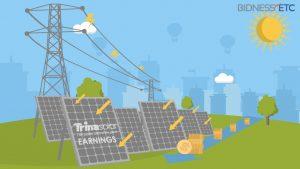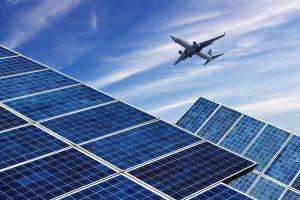Buckminster Fuller
understood the need for a move to tiny houses. Unfortunately for Fuller
(and the rest of us), he was 80 years ahead of his time.
In
the past 10 years, tiny houses have become extremely trendy, and not
without good reason. The real estate market has proven to be turbulent,
to say the least. Down-sizing to live within your means is a concept
that is increasingly popular not only among millennials, but with their
aging baby boomer parents as well.
Tiny houses –
compact, single family dwellings under 400 square feet– stand in stark
contrast to the American trend toward larger and larger homes that
started in the 1970’s and peaked in the early 2000’s. The current fad in
tiny houses utilizes highly designed, compact interior spaces that
include most, if not all of the modern conveniences, while maintaining a
very traditional, cute cottage exterior appearance that makes them more
enticing to tiny house newbies. Despite their small footprint, tiny
houses retain a warm, cozy feel, which is key to their appeal.
This charm factor, or more precisely the lack of perceived charm, may
have lead to the demise of an early 20th century precursor to the tiny
house movement of today. In 1930, visionary architect R. Buckminster
Fuller designed the Dymaxion House,
an 1,100 square foot cylindrical aluminum yurt-like dwelling that is as
radical today as it was in the last century.
Read More
Solar Ricardo

Monday, August 31, 2015
Thursday, August 27, 2015
Solar and the Stock Market
As of this writing, the global economy is on an
insane roller coaster and US stocks have lost $2.1 Trillion in the last
week. Do we have any idea what this means for solar?
 The recent problems began with news of a cooling Chinese economy, and
this is important to solar watchers for a number of reasons. Although
no one can say for sure how long the stock sell-off will last, some
solar market watchers are looking at the implications for the solar
industry in both the near and long term. Many investors are watching
companies like Trina solar, who are being dragged down with the rest of
the market, as good opportunities to buy and hold. Professional
investors at Seeking Alpha
believe that Trina, Junko and other Chinese solar manufacturers that
have sound financial fundamentals and are showing growth may be looking
at a strong rebound when the market finishes its correction.
The recent problems began with news of a cooling Chinese economy, and
this is important to solar watchers for a number of reasons. Although
no one can say for sure how long the stock sell-off will last, some
solar market watchers are looking at the implications for the solar
industry in both the near and long term. Many investors are watching
companies like Trina solar, who are being dragged down with the rest of
the market, as good opportunities to buy and hold. Professional
investors at Seeking Alpha
believe that Trina, Junko and other Chinese solar manufacturers that
have sound financial fundamentals and are showing growth may be looking
at a strong rebound when the market finishes its correction.
Read more
 The recent problems began with news of a cooling Chinese economy, and
this is important to solar watchers for a number of reasons. Although
no one can say for sure how long the stock sell-off will last, some
solar market watchers are looking at the implications for the solar
industry in both the near and long term. Many investors are watching
companies like Trina solar, who are being dragged down with the rest of
the market, as good opportunities to buy and hold. Professional
investors at Seeking Alpha
believe that Trina, Junko and other Chinese solar manufacturers that
have sound financial fundamentals and are showing growth may be looking
at a strong rebound when the market finishes its correction.
The recent problems began with news of a cooling Chinese economy, and
this is important to solar watchers for a number of reasons. Although
no one can say for sure how long the stock sell-off will last, some
solar market watchers are looking at the implications for the solar
industry in both the near and long term. Many investors are watching
companies like Trina solar, who are being dragged down with the rest of
the market, as good opportunities to buy and hold. Professional
investors at Seeking Alpha
believe that Trina, Junko and other Chinese solar manufacturers that
have sound financial fundamentals and are showing growth may be looking
at a strong rebound when the market finishes its correction.Read more
Wednesday, August 26, 2015
Detroit Maker Faire – Motor City Mayhem!
Detroit! The Motor City! Despite having fallen on some hard times, Detroit is still my favorite American city, and the 2015 Detroit Maker Faire
was a perfect example of why I love the place. Great people with great
ideas are making it happen against the odds. Garage entrepreneurs rolled
out their latest 3D printers
and laser cutters, right next to teams of school kids exhibiting
amazing DIY robots. Traditional fiber artists and woodworkers hob-nob
with hackers. If the Maker Faire is any indicator of what’s ahead for
the Motor City, Detroit’s best years are still ahead of it!
 Each July, Maker Media (the publishers of Make Magazine) partner with The Henry Ford
museum in Dearborn, Michigan to “host two days of unconventional
ingenuity, unbridled creativity and a whole lot of forward thinking.”
I’ve been wanting to get to this event for the last several years, and
this summer I finally made it. And it didn’t disappoint!
Each July, Maker Media (the publishers of Make Magazine) partner with The Henry Ford
museum in Dearborn, Michigan to “host two days of unconventional
ingenuity, unbridled creativity and a whole lot of forward thinking.”
I’ve been wanting to get to this event for the last several years, and
this summer I finally made it. And it didn’t disappoint!
Read More
 Each July, Maker Media (the publishers of Make Magazine) partner with The Henry Ford
museum in Dearborn, Michigan to “host two days of unconventional
ingenuity, unbridled creativity and a whole lot of forward thinking.”
I’ve been wanting to get to this event for the last several years, and
this summer I finally made it. And it didn’t disappoint!
Each July, Maker Media (the publishers of Make Magazine) partner with The Henry Ford
museum in Dearborn, Michigan to “host two days of unconventional
ingenuity, unbridled creativity and a whole lot of forward thinking.”
I’ve been wanting to get to this event for the last several years, and
this summer I finally made it. And it didn’t disappoint!Read More
Friday, August 21, 2015
Airports Are Going Solar
Airports need lots of flat, open, unobstructed
land surrounding them. Why not fill that open space with solar panels?
Several large airports have done just that.
 This week, Cochin International Airport Limited in Kochi, Kerala
(India) inaugurated a 50 acre, 12 MW solar PV plant, making it the first
airport in the world to offset 100% of its usage through the use of
solar. The airport also has another 1 MW solar PV plant in addition to a
smaller grid-connected 100 kW rooftop system, both of which were
installed two years ago. Also in India, the Indira Gandhi International
Airport near Delhi installed a 2.14 MW plant last year.
This week, Cochin International Airport Limited in Kochi, Kerala
(India) inaugurated a 50 acre, 12 MW solar PV plant, making it the first
airport in the world to offset 100% of its usage through the use of
solar. The airport also has another 1 MW solar PV plant in addition to a
smaller grid-connected 100 kW rooftop system, both of which were
installed two years ago. Also in India, the Indira Gandhi International
Airport near Delhi installed a 2.14 MW plant last year.
According to solarlove.org:
“The Airport Authority of India (AAI), which operates 125 airports across the country, including the Cochin and Kolkata airports, has decided to build solar power plants at about 30 of its airports.
AAI has plans to install 50 MW capacity plants in the first phase (by 2016), which would be enhanced to 150 MW over a period of time.
Read More
 This week, Cochin International Airport Limited in Kochi, Kerala
(India) inaugurated a 50 acre, 12 MW solar PV plant, making it the first
airport in the world to offset 100% of its usage through the use of
solar. The airport also has another 1 MW solar PV plant in addition to a
smaller grid-connected 100 kW rooftop system, both of which were
installed two years ago. Also in India, the Indira Gandhi International
Airport near Delhi installed a 2.14 MW plant last year.
This week, Cochin International Airport Limited in Kochi, Kerala
(India) inaugurated a 50 acre, 12 MW solar PV plant, making it the first
airport in the world to offset 100% of its usage through the use of
solar. The airport also has another 1 MW solar PV plant in addition to a
smaller grid-connected 100 kW rooftop system, both of which were
installed two years ago. Also in India, the Indira Gandhi International
Airport near Delhi installed a 2.14 MW plant last year.According to solarlove.org:
“The Airport Authority of India (AAI), which operates 125 airports across the country, including the Cochin and Kolkata airports, has decided to build solar power plants at about 30 of its airports.
AAI has plans to install 50 MW capacity plants in the first phase (by 2016), which would be enhanced to 150 MW over a period of time.
Read More
Thursday, August 13, 2015
Lasagna Gardening – Compostilicious!
 Last year, I posted an article about double-digging,
and how to turn some problem soil rapidly into a healthy garden that
you could plant right away. Well, summer has flown by, and although I
double-dug a new strawberry patch large enough for 100 strawberry plants
(which are doing great, by the way) there is another old patch of
garden that I started several years ago, and then abandoned because the
soil was just hard clay, and I planned to amend it “next year.” Well,
yes, another next year has come and is rapidly going, and I managed to
keep the weeds down before they went to seed, but there were just too
many other projects that took priority over that old garden. This time, I
pledged to make a preemptive strike! I am going to start a large-scale
sheet composting operation and make the garden a lovely warm winter meal
of lasagna!
Last year, I posted an article about double-digging,
and how to turn some problem soil rapidly into a healthy garden that
you could plant right away. Well, summer has flown by, and although I
double-dug a new strawberry patch large enough for 100 strawberry plants
(which are doing great, by the way) there is another old patch of
garden that I started several years ago, and then abandoned because the
soil was just hard clay, and I planned to amend it “next year.” Well,
yes, another next year has come and is rapidly going, and I managed to
keep the weeds down before they went to seed, but there were just too
many other projects that took priority over that old garden. This time, I
pledged to make a preemptive strike! I am going to start a large-scale
sheet composting operation and make the garden a lovely warm winter meal
of lasagna!Sheet mulching is a permaculture technique that utilizes alternating layers of different types of compost materials. By alternating your “greens” (nitrogen-rich, fresh plant material like grass clippings and kitchen peelings) and “browns” (older, dry material like leaves or straw) you can create compost right on top of the garden, where it is needed.
Read More
Monday, August 10, 2015
Where Does Trump Stand on Solar?
What would a Trump presidency mean to the US solar industry?
Since Solar Tribune published the “Solar Scorecard” of 2016 presidential contenders in January, The Republican field has grown even larger, while the field has narrowed on the Democrat’s side of the race. In fact, the Republican side is becoming so crowded that it takes not one, but a series of debates to get them all on stage. Similarly, it will take a series of articles to cover the solar stances of all of the candidates.
As of this writing, Donald Trump continues to be the frontrunner in the Republican race. The bombastic billionaire media-hound continues to make headlines with his condemnation of big government and the status quo, and those headlines are keeping his poll numbers high. Most political reporters agree, though, Mr. Trump’s campaign to date has been light on substance, and his position on energy policy remains unclear. Can we look at “The Donald’s” past statement and extrapolate anything about what a Trump presidency might mean to the US solar industry?
On January 25th, 2012, @realDonaldTrump tweeted, “After Solyndra, @BarackObama is stil (sic) intent on wasting our tax dollars on unproven technologies and risky companies. He must be accountable.”
Read More
Since Solar Tribune published the “Solar Scorecard” of 2016 presidential contenders in January, The Republican field has grown even larger, while the field has narrowed on the Democrat’s side of the race. In fact, the Republican side is becoming so crowded that it takes not one, but a series of debates to get them all on stage. Similarly, it will take a series of articles to cover the solar stances of all of the candidates.
As of this writing, Donald Trump continues to be the frontrunner in the Republican race. The bombastic billionaire media-hound continues to make headlines with his condemnation of big government and the status quo, and those headlines are keeping his poll numbers high. Most political reporters agree, though, Mr. Trump’s campaign to date has been light on substance, and his position on energy policy remains unclear. Can we look at “The Donald’s” past statement and extrapolate anything about what a Trump presidency might mean to the US solar industry?
On January 25th, 2012, @realDonaldTrump tweeted, “After Solyndra, @BarackObama is stil (sic) intent on wasting our tax dollars on unproven technologies and risky companies. He must be accountable.”
Read More
Friday, August 7, 2015
3D printers – Next Big Thing, or High-Dollar Techie Toy?
There is a whole lotta buzz out there about 3D printers right now. Folks are saying that 3D printing could be heralding in an era of “desktop manufacturing” echoing the
major successes of desktop publishing in the 80’s, and desktop video in
the 90’s. But is this fuhreals? Can the 3D printer unleash a new era of
good ol’ American ingenuity?

I’ve had the opportunity to get up-close and personal with a couple of 3D printers lately at the Iowa Innovation Learning Center in Hiawatha, Iowa. I got the chance to develop and print my own original designs, as well as open source designs from sites like Thingiverse.com. I gotta say, this technology is serious FUN. Is it ready to save America’s manufacturing economy from the onslaught of CCC (Cheap Chinese Crap)? Honestly, probably not, but I do think that this scrappy upstart tech has some serious potential.
Read More

I’ve had the opportunity to get up-close and personal with a couple of 3D printers lately at the Iowa Innovation Learning Center in Hiawatha, Iowa. I got the chance to develop and print my own original designs, as well as open source designs from sites like Thingiverse.com. I gotta say, this technology is serious FUN. Is it ready to save America’s manufacturing economy from the onslaught of CCC (Cheap Chinese Crap)? Honestly, probably not, but I do think that this scrappy upstart tech has some serious potential.
Read More
Tuesday, August 4, 2015
Solar in Space: Powering Earth and Beyond
Ever since the United States launched the Vanguard 1 satellite into space on March 17, 1958, solar panels have been an integral part of nearly every satellite, orbiter and space station. Now, after decades of lackluster development, both technologies– solar and space flight– are “taking off.” For many of us who grew up in the last century, our first awareness of photovoltaic (PV) panels was seeing photos of the futuristic blue wings that powered the Russian Soyuz spacecraft, or the American Skylab space station, or the plethora of communications satellites that were being launched into orbit. It wasn’t until a little later that PV panels began to spring up as power plants for remote outposts, and finally, for off-grid homes.
Now, solar arrays are becoming ubiquitous here on earth, and after a long period of stalled funding and conflicted priorities at NASA, privately-funded space travel is finally becoming a reality as well. This exponential growth in both areas, solar and space travel, bodes well for a future of collaborative development that could help bootstrap both technologies to the next level.
Read More
Subscribe to:
Comments (Atom)


